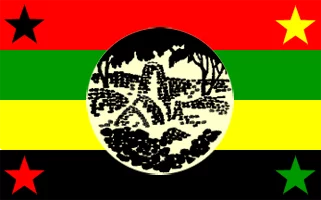ZAPU says it stands by the choice made by Joshua Nkomo, whose disdain for conflict saw him sacrifice the party in order to save people from further violence during the Gukurahundi era.
After thousands of people were killed during the genocide, Nkomo who was the ZAPU leader signed the 1987 Unity Accord with Zanu, then led by the now late Robert Mugabe to form a new government and end the killings.
The current ZAPU leadership says it respects Nkomo’s decision, which saved the lives of many more people, when thousands had been massacred by the state-sponsored army – the Fifth Brigade.
“Perhaps Joshua Nkomo’s enduring legacy was his disdain for conflict among the people of Zimbabwe. This, however, did not stop the bloodthirsty cannibalistic group of 1963 from feasting on the blood of innocent people during a genocide now known as Gukurahundi,” said Msongelwa Ndlovu, ZAPU national spokesperson on the commemoration of Dr Joshua Nkomo’s legacy who died on July 1, 1999.
“While ZAPU was the primary target of this crime against humanity, and joins families who lost their loved ones, we stand firmly behind the leadership of our party then because we fully understand the political and military dynamics at the time.”
Ndlovu said ZAPU understood the complexity of the genocide, whose aim was to destroy its supporters during that wave of violence, so ending the genocide was necessary.
“We understand that the genocide happened when a multiplicity of forces engaged in a vicious winner-take-all conflict whose outcomes were designed to become the complete annihilation of our party at least or our supporters at most.
“Our leaders chose to sacrifice the party in order to save our people. While tens of thousands of our people still perished, millions of us were given a fighting chance,” said the spokesperson while highlighting the character of Dr Nkomo.
However, Ndlovu noted that instead of honouring the late nationalist’s role in building a united Zimbabwe, some criticised his move.
“While some of us have accepted the challenge, others are challenging history and revelling in revisionist pedagogy. Those amongst us not fit enough to untie Joshua Nkomo’s shoes are today challenging his status,” Ndlovu said.
“While Dr Nkomo led an army against a sophisticated enemy in Rhodesia, others are today leading a band of attention and affection-seeking kindergarten mobs against his mortal remains. Their language may have changed, but their message and intentions are similar to those who persecuted Joshua Nkomo after independence.”
Ndlovu said the life and status of Dr Nkomo spoke for itself.
“Joshua Nkomo is a movement, an idea which needs no defence from mere mortals,” he remarked.
“As if to confirm his visionary status, months later, the country’s economy went into a tailspin we are yet to recover from, 23 years later. This confirms the suggestions that his presence in government provided the stability and the protection of national resources from scavengers who, after his demise, started pillaging the resources like possessed spirits.”
Ndlovu pointed out that ZAPU’s founding president was an epitome of selflessness and sacrifice, whose leadership was a product of national consensus while his tenure was characterised by nation-building even when faced with resistance.
“Dr Nkomo assembled and led a well-oiled guerrilla army which earned respect from friends and foes alike. After independence, he facilitated empowerment schemes for his now demobilised soldiers. He also set up numerous sustainable businesses designed to help communities and the nation at large,” Ndlovu noted.
“Dr Nkomo also facilitated the empowerment of ZAPU members through education scholarships around the world. These countrymen and women are today leaders of commerce, industry and civil society in different spheres of society.”
One of Dr Nkomo’s footprints is arguably the most successful business entity ever established by a black Zimbabwean, Econet Wireless, claimed the ZAPU’s spokesperson.
“He saw beyond the ordinary when ordinary leaders around him lambasted him. He chose to support a black man’s vision, against a party whose mission was to loot and destroy. That Econet Wireless is today a shining example of black excellence is evidence of what Zimbabwe missed in 1980 when they chose a looting enterprise when they heard aluta continua,” Ndlovu said, adding that in honour of the late nationalist’s works, “Zimbabweans will defend his legacy through the ballot come 2023.”
The ZAPU spokesperson also invited Zimbabweans from all walks of life to join the ZPRA Veterans in a public march in Bulawayo Saturday as they commemorated the life of ‘Father Zimbabwe.’
“The march will start at 10 am from Masotsha Avenue and Joshua Mqabuko Nkomo Street and end at the statue of Joshua Nkomo,” he said.

